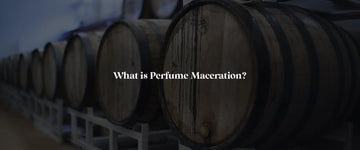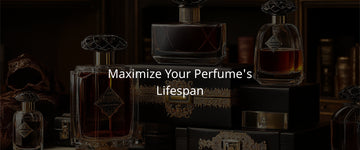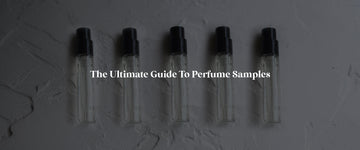Have you ever tried a new perfume and found that it doesn't smell as good as it did in the store? Don’t worry, it’s not a bad perfume. It might just need to go through a process called maceration to smell its best.
What is Perfume Maceration?
Maceration, also known as fragrance aging, is when perfume oils mix together in alcohol over time. This process helps the scent become smoother and more pleasant, just like how tea needs time to steep in hot water to taste right.
The Science Behind Fragrance Maturation
Perfumes are made from different fragrance oils, which have many tiny parts that make up the overall scent. When these oils are first mixed, they can sometimes smell too strong or harsh. Maceration helps the oils blend and mellow out in the alcohol base, making the perfume smell better over time.
During maceration, the perfume goes through these changes:
- Top Notes: The first scent you smell, which lasts about 5-15 minutes, starts to settle.
- Middle Notes: The main part of the scent, which develops after the top notes fade and lasts 2-4 hours, becomes stronger.
- Base Notes: The lasting scent that gives the perfume depth, which can last up to 8 hours, becomes more noticeable.
This process makes the perfume more balanced and long-lasting on your skin.
Maceration Enhances Perfume Quality
Maceration is important for making high-quality perfumes. Here’s how it helps:
- Scent Refinement: It makes harsh scents smoother and more sophisticated.
- Fragrance Longevity: It helps the scent last longer on your skin.
- Sillage and Projection: It makes the scent trail, or sillage, more noticeable to others.
- Complexity and Depth: It brings out the different layers and subtleties in the scent, making it more interesting.
How to Macerate Your Perfume at Home
While many perfume makers already macerate their perfumes before selling them, sometimes a new bottle can benefit from extra aging. Here’s how you can do it:
- Spray 5-10 pumps of the perfume into the air to get it started.
- Close the bottle and put it back in its original box.
- Store the boxed perfume in a cool, dry place away from sunlight, like the back of a drawer, for 2-4 weeks.
During this time, the perfume's scent will develop and become richer.
Factors Affecting Perfume Maceration
Several things can affect how well a perfume macerates:
- Fragrance Type: Alcohol-based perfumes like eau de parfum and eau de toilette benefit most from maceration, while oil-based perfumes might not need it.
- Storage Conditions: Keep your perfume away from heat, humidity, and sunlight to prevent the fragrance oils from breaking down.
- Time: The best maceration time varies. Some perfumes might be ready in a few weeks, while others need several months.
The Maceration Debate
Some people doubt the need for maceration, saying that perfumes are made to be stable and don’t need extra aging. However, many perfume lovers and makers believe that proper maceration can make a big difference in how a perfume smells.
Conclusion
Perfume maceration is a key process that helps fragrances reach their full potential. By allowing fragrance oils to blend and mature in the alcohol base, maceration creates a scent that is smoother, more complex, and longer-lasting.
Whether you're a perfume fan or just looking to get the best out of your favourite scents, understanding maceration can help you enjoy your perfumes more. So next time you buy a new perfume, give it some time to age – you'll be rewarded with a beautifully matured and captivating scent.





